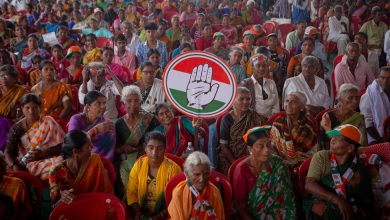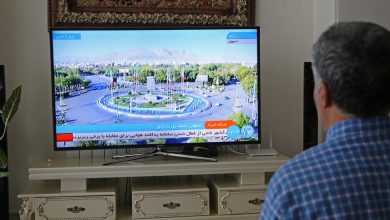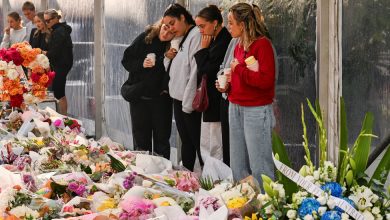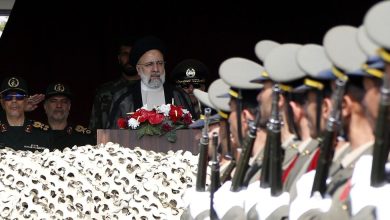Biden Navigates Divisions Over Gaza Inside the White House and Beyond
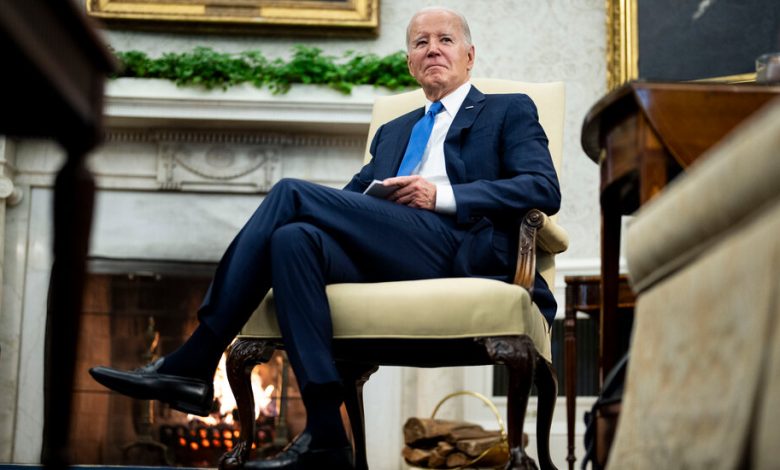
President Biden’s guests did not try to hide their anguish.
Just weeks after the start of the Israel-Hamas war, Mr. Biden had invited a small group of prominent Muslim Americans to the White House to discuss Islamophobia in America. The participants were blunt with him, according to four people who were in attendance.
They told him that his embrace of Israel after the Oct. 7 terrorist attacks was seen by many as permission for Israel’s bombing in Gaza. They said the president’s statement casting doubt on the death toll among Palestinians was insulting. And they said the fatal stabbing of a 6-year-old Muslim boy outside Chicago was just one devastating result of the dehumanization of their community.
The private meeting, which had been scheduled for 30 minutes, stretched to more than an hour, attendees said. Mr. Biden waved off aides who tried to pull him out of the room as he listened to the criticism and shared his own experience with loss and grief.
“He recognized there may have been missteps on the rhetoric,” said Wa’el Alzayat, the chief executive of Emgage, a group that mobilizes Muslim voters, who attended the meeting in the Roosevelt Room on Oct 26. “He listened, he did show empathy and he promised to do better, particularly on humanizing Palestinians.”
Keith Ellison, Minnesota’s attorney general, who was also at the meeting, said the war had increased risks for Americans, as well.
“Muslim community leaders told President Biden that the suffering of innocent Gazans trying to survive in extremely difficult circumstances has actually increased the likelihood of Islamophobic attacks in the United States,” he said.
The gathering ended with Mr. Biden hugging a woman who had lost her brother in an anti-Muslim hate crime several years ago. But the group left without one thing that it had come for: a promise from Mr. Biden to call for a permanent cease-fire.
The meeting was a glimpse into a much larger task Mr. Biden faces as he tries to navigate deep anger among longtime supporters and even inside the White House, where some younger staff members, particularly those with Arab or Muslim backgrounds, have said they feel disenchanted with the president they serve.
Biden administration officials say the president’s support for Israel’s right to defend itself after Hamas’s deadly assault is only part of the story. Increasingly, Mr. Biden has paired his words of support with more forceful calls for caution and the protection of Palestinian civilians as the death toll reaches catastrophic levels.
They point to his Oval Office address on Oct. 20, when he denounced Islamophobia and the death of Wadea Al-Fayoume, the 6-year-old who was fatally stabbed in Illinois in what authorities have called a hate crime. Mr. Biden said he was “heartbroken” by the loss of Palestinian life in the war.
The officials, who spoke on the condition of anonymity to describe discussions in the White House, also say Mr. Biden’s solidarity with Israel has allowed him to wield influence with Prime Minister Benjamin Netanyahu on humanitarian aid and opening the Rafah crossing with Egypt.
But to many in the Arab community, Mr. Biden’s words and actions after the Oct. 7 attacks made them — and the Palestinian civilians in Gaza who are dying in the thousands — feel like an afterthought in the war.
“There’s this sense that the trauma of one people counts more than the trauma of another,” said James Zogby, the president of the Arab American Institute, which has been polling the community for 27 years. “It’s like there are two intolerables, and they’ve decided which one they’re going to accept.”
That distress was on clear display at the meeting with Mr. Biden. Participants said they were aghast that just one day earlier, during a news conference with the Australian prime minister, the president told reporters that he had “no notion that the Palestinians are telling the truth” about the number of their dead.
The innocent people who died, Mr. Biden said, were the “price of waging war.”
The comments inflamed concerns among those who felt Mr. Biden’s support for Israel was unconditional, even as the country’s assault on Gaza was killing thousands upon thousands of people, even by the United States’ own estimates.
His comments also sparked outrage inside the White House, including by some who felt messages of support for Jewish staff members could be perceived as insensitive to Arabs and Muslims on staff.
Mr. Biden’s senior aides, led by Jeffrey D. Zients, the White House chief of staff, have held multiple meetings with upset officials to hear their complaints. One such meeting was led recently by Mr. Zients; Anita Dunn, the president’s senior adviser; Jon Finer, the deputy national security adviser; and Stephen Benjamin, the director of public engagement. The meeting allowed unhappy staff members to air their concerns about the president’s strategy and rhetoric.
(Mr. Biden has not attended the meetings, other than the one on Oct. 26.)
By some accounts, the meetings, some details of which were reported earlier in The Washington Post, have helped shape the language the White House uses to discuss the conflict. An opinion essay drafted by the White House and published under the president’s name in The Post a few days after the meeting with Mr. Zients and the others took care to express empathy not just for Israeli victims of the Hamas attacks, but also for Palestinian civilians afflicted by Israel’s military assault.
“I, too, am heartbroken by the images out of Gaza and the deaths of many thousands of civilians, including children,” Mr. Biden said in the essay. He added, “Every innocent Palestinian life lost is a tragedy that rips apart families and communities.”
Mr. Biden has long been a champion of Israel and of Jewish nationalism, saying often that “you don’t have to be a Jew to be a Zionist.” His unwavering support has at times put him at odds with some members of his own party, particularly among a left-leaning coalition that sees the Palestinian cause as an extension of racial and social justice movements.
As Mr. Biden looks toward the 2024 presidential election, his stance on the war could be significant in a contest that may hinge on swing states such as Georgia and Michigan, whose Muslim and Arab American voters turned out for him three years ago.
Ghada Elnajjar was among the Palestinian Americans who began mobilizing and fund-raising for Mr. Biden in Georgia in 2020 with the group Arab Americans for Biden. She said the group’s campaign pledge — that “Joe Biden believes in the worth and value of every Palestinian and every Israeli” — haunts her now.
“I felt that we were able to come together as a community to elect this president who recognized us, who was happy to be in partnership with us,” she said. “And you would think with that comes leverage and influence, and to be totally sidelined on the most important topic that you elected the president on is mind-blowing.”
After the war started, the group changed its name to Arab Americans Forward, removing Mr. Biden’s name, Ms. Elnajjar said. And as she has learned about the death of more than 60 of her extended family members in the war, she does not see a way back to Mr. Biden, who brokered a truce on the day her family in Gaza ran out of food.
Dr. Zogby, who has advised several Democratic campaigns on their Palestinian platforms, including Mr. Biden’s in 2020, said he believed the repercussions of the war would span generations.
Just as the Hamas attacks evoked the vulnerability and trauma of the Holocaust, Dr. Zogby said, Israel’s response evoked what Palestinians call the Nakba, or “catastrophe,” the 1948 displacement of hundreds of thousands of Palestinians in the war surrounding the creation of Israel 75 years ago.
“It’s not as if, from the earliest days, that we didn’t know how this was going to end,” he said of the war in Gaza. “When the dust settles, and the tears dry, what we’re going to have is more dead bodies, more anger and more extremism.”
Peter Baker contributed reporting.
